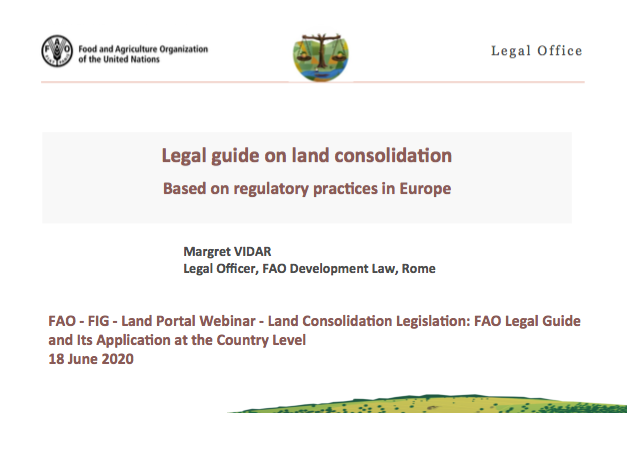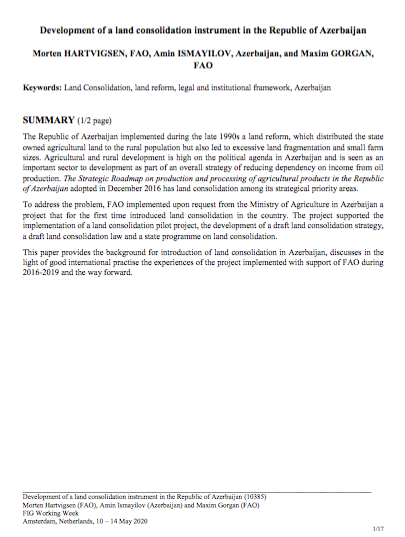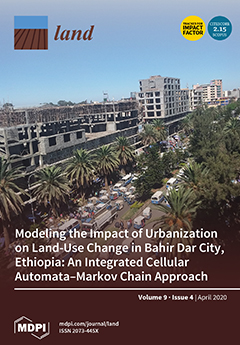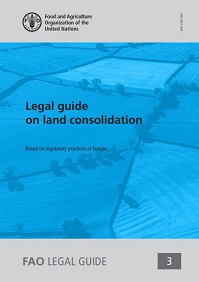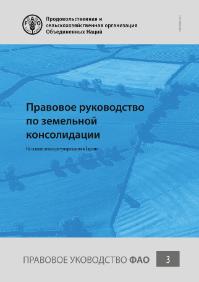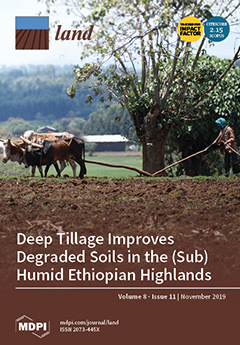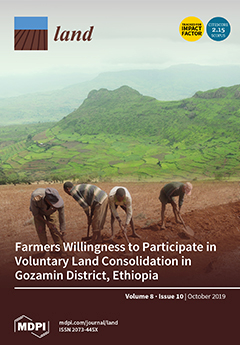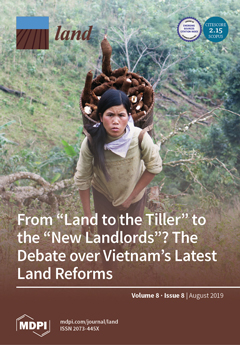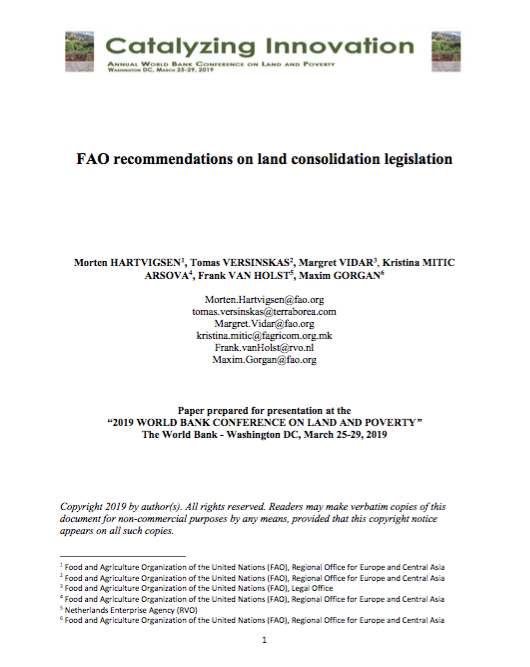Presentation: Legal Guide on Land Consolidation
This presentation was given at the Webinar "Land Consolidation Legislation: FAO Legal Guide and Its Application at the Country Level" on 18 June 2020. It explores the content of the new FAO Legal Guide on Land Consolidation, as well as the context that led to the development of this guide.

